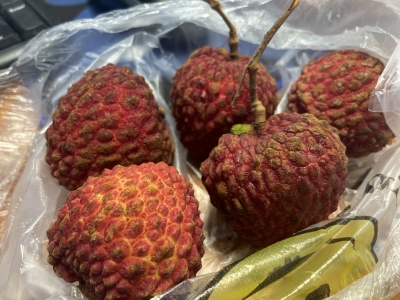Can patients with fever eat lychee?
Febrile illness refers to a fever. Generally, patients with mild fever and normal digestive function can consume an appropriate amount of lychee. However, it is not recommended for individuals with high fever, digestive dysfunction, diabetes, or other related conditions. Detailed explanations are as follows:

Patients with mild fever (body temperature ≤38℃) and no significant digestive discomfort, such as nausea, vomiting, or diarrhea, can benefit from moderate lychee consumption, as it provides energy and vitamins. Lychee is rich in glucose, which quickly supplies calories to the body, and its vitamin C content helps enhance immunity and support recovery.
Patients with high fever (body temperature >38.5℃) or weakened digestive function should avoid consuming lychee. During high fever, the body's metabolism accelerates while gastrointestinal motility slows down. The high sugar content in lychee may worsen bloating and loss of appetite. Additionally, lychee's warming properties might intensify internal heat sensations, which are unfavorable for reducing fever. Moreover, patients with diabetes experience reduced blood sugar regulation during fever, and lychee consumption may lead to blood sugar fluctuations. Patients exhibiting symptoms of heat-related conditions such as mouth ulcers and constipation may experience worsened heatiness after consuming lychee. Therefore, these individuals should strictly limit lychee intake.
When consuming lychee during a fever, control the portion size, avoid eating it on an empty stomach, and consider pairing it with warm water or bland food. If symptoms such as bloating or elevated blood sugar occur after consumption, stop eating lychee immediately and monitor any bodily reactions.








